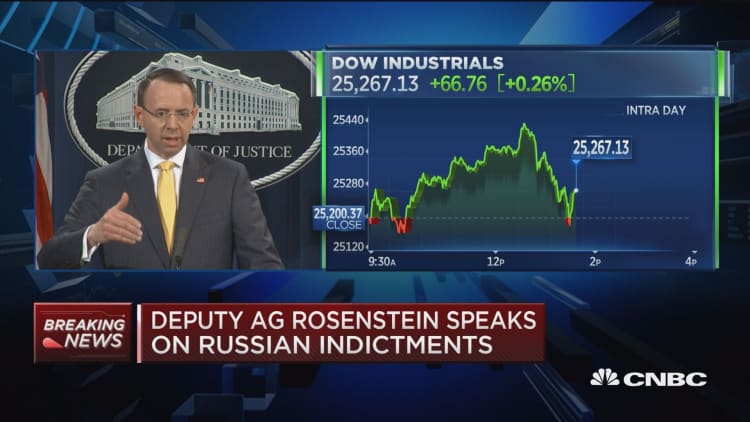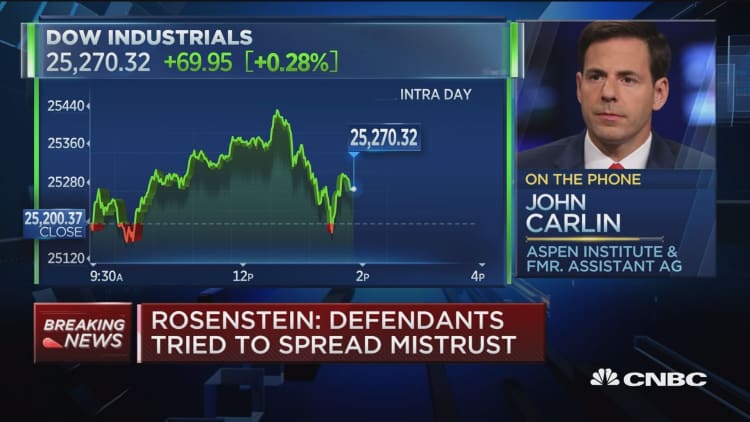
When Deputy Attorney General Rod Rosenstein spoke to the press Friday, he repeatedly made it clear that his comments were specific to the federal grand jury indictment the special counsel's office had just announced.
Shortly before the news conference, the office of special counsel Robert Mueller said a federal grand jury had indicted 13 Russians and three Russian entities for their efforts to aid Donald Trump during the 2016 election.
Rosenstein repeatedly emphasized that in this particular indictment, there is no allegation that these operatives had any effect on the outcome of the election. He also highlighted that Friday's indictment does not allege that any American knowingly participated in the Russian operation.
"The nature of the scheme was that the defendants took extraordinary steps to make it appear that they were ordinary American political activists," he said.
Rosenstein explained that these individuals used a virtual private network to disguise their activities, "so if anybody traced them back to their first jump, they appear to be Americans."
But the deputy attorney general's comments were not an "all-clear" signal for the president, former assistant attorney general John Carlin told CNBC.
"What you saw at the press conference is not an 'all-clear.' Instead it's a careful prosecutor sticking to the four corners of the indictment," Carlin said on "Power Lunch."
Carlin, who previously was chief of staff to Mueller when he was director of the FBI, said that the investigation is not over and that Americans will "have to just wait and see."
Rosenstein also said the federal government will seek extradition of the Russian nationals through "normal channels." The U.S. does not have an extradition treaty with Russia, which has not historically cooperated with such requests.
Cornell Law Vice Dean Jens Ohlin said, however, that the Kremlin won't hand over Russian citizens anytime soon. But he explained that indictments can do more than catch principal perpetrators. Ohlin said that they can also be made "with an eye towards accomplices and conspirators, who may not even be identified yet."
"If someone in the United States assisted them, though, they could be prosecuted for their participation in the criminal endeavor. We don't know who those persons are, but as of today we know a lot more about the criminal enterprise they were involved in," Ohlin said.
Trump said in a tweet Friday that the latest indictment issued by special counsel Robert Mueller showed that his presidential campaign "did nothing wrong" during the 2016 election. Trump has repeatedly denied collusion with Russian entities and has called the investigation a "hoax."
Rosenstein, who appointed Mueller as special counsel, oversees the Russia probe because Attorney General Jeff Sessions recused himself from it last year.
— CNBC's Michelle Fox contributed to this report.
WATCH: Fmr. Asst. AG: Time to act is now against more Russian influence



